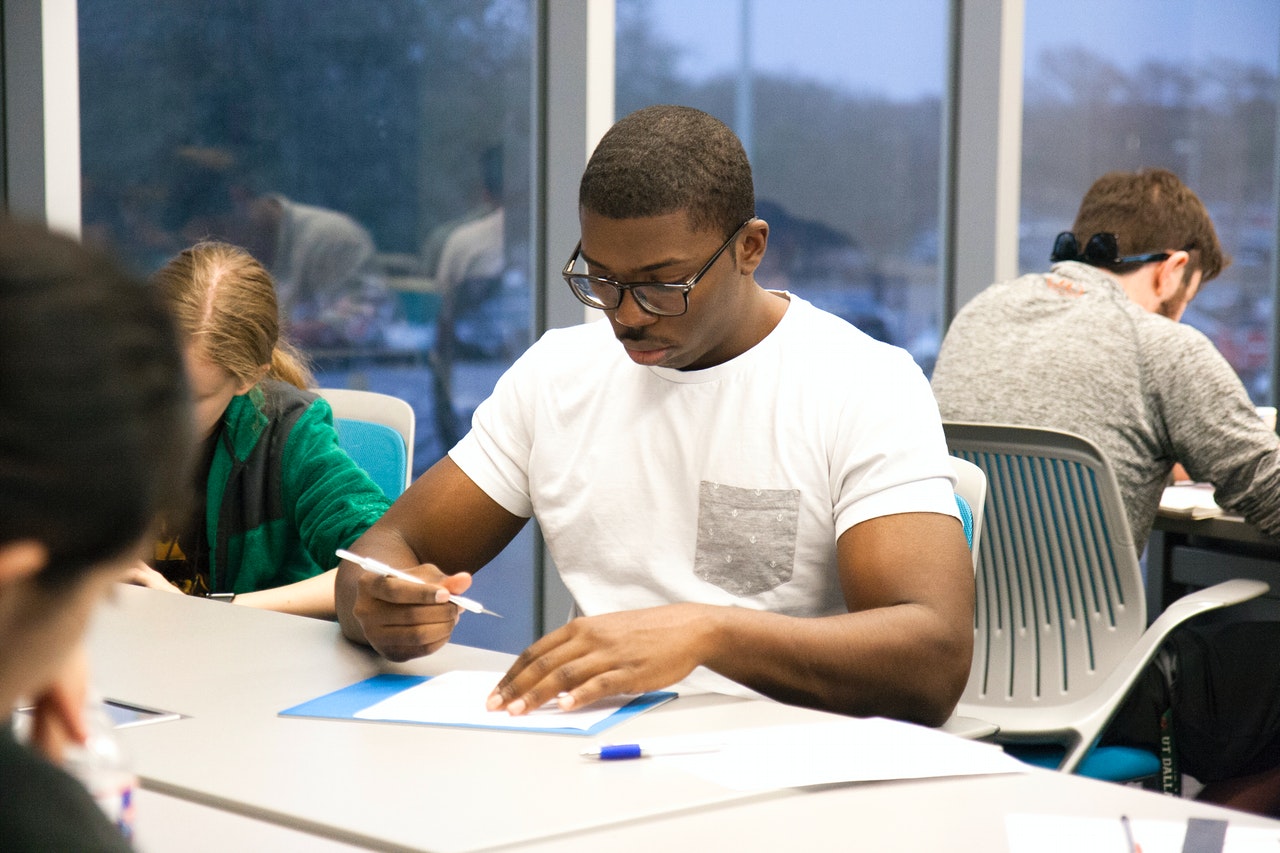

For many colleges, April and May are a time that denotes stressful final exams. Months of hard work and preparation culminate into one final moment to make or break the semester. Acing these last tests is a must, which will require all the productivity students can muster.
How to Ace Your Final Exams
To get a grip on your classes, leverage the power of your Calendar. Time management will be an invaluable asset as you organize your efforts in preparation for the final days of the semester. Here’s how you can work your way toward straight A’s:
Lock Down Your Study Habits
Studying can be grueling, and it’s easy to get distracted by social media or the lure of video games as an escape from the drudgery. These distractions only prolong the time you spend studying, which will end up making you feel even more stressed at the end of the day. Using your Calendar, you can discipline yourself to make your studying more effective and leave room to unwind guilt-free.
Set fixed times for studying in your Calendar. During this time, don’t let anything else distract you. Flexible studying hours are more prone to be interrupted by outside events or the itch to scroll through social media. Nothing will hurt your test chances faster than inefficient studying.
Also, make sure you don’t overdo it. Too much studying in one sitting often leads to exhaustion and burnout. Use your Calendar to space out your studying, allowing for short breaks to regain your composure before hitting the books once again.
Take Practice Tests
Practice makes perfect. Taking practice tests of your finals will prepare you for the type of questions you can expect to see on test day. Many professors will provide example tests for you to take. If one isn’t available, you’ll have to make your own.
Once you have your hands on a practice test, schedule time in your Calendar to take it several times before the actual test. You’ll put your knowledge to the test without a final grade at stake. After several attempts, you’ll feel more confident about your abilities leading up to the true exam.
As you take each test, record your score and make notes on what you need to improve upon. Tracking your progress will direct your studying to where it’s needed most and give you the confidence you need in your preparation. Be careful not to just memorize the answers to the questions you see repeatedly. In fact, practice tests with randomized questions are better because they require critical thinking instead of only memorization.
Teach Someone Else
You don’t know how well you understand a topic until you try and explain it to someone else. Teaching a lesson on your upcoming final exam is a great way to evaluate your understanding of the course. The person you teach will ask clarification questions that can bring up new research to prepare for your test, or you may find that explaining things out loud was just what you needed to realize you have things down.
Coordinating a time to teach someone else might be tricky, especially if you’re meeting with a fellow student with their own finals to prepare for. Luckily your Calendar makes this easy. By making a scheduling link, you can send your availability to whoever agrees to help you out. Using the link they can select a time and place that works for them.
This also works for online students, since many classes are still remote while the COVID vaccine is being distributed. In your Calendar, you can add a video conference link to the event. When the time rolls around, it only takes one click to open up a virtual meeting room and get started.
Get a Good Start
On the day of your final exams, you want to start off on the right foot. You’ll need to be on top of your game to tackle all of the tests you have lined up. To open up your finals week, start by getting the right amount of rest.
A good sleep schedule can be hard to come by with all the hours of studying, but it’s essential if you want to be in top shape come test time. To ensure you’re getting proper sleep, use your online calendar to create evening and morning routines that stop you from staying up too late and sleeping in longer than necessary. Too much or too little sleep will have you feeling groggy and disjointed, spelling disaster come test time.
Other tasks you can do the night before a test are gathering up notes and resources, double-checking your test schedule, and preparing a healthy breakfast for optimal energy come morning. Start developing a routine in advance so you can find what works best for you instead of making an attempt in too short of time.
Meet With Your Teacher
Most professors hold office hours each week to help their students with questions and concerns. Sadly, few people take advantage of “teacher” time to ask for advice from the source. Meeting with your teacher before the exam is one of the best things you can do to prepare. Truly — this is one secret of university success.
Look in your class syllabus to see when your teacher has office availability and schedule some time to spend with them. Come with questions about the class or specific aspects of the course you’re struggling with. They’ll be able to help you understand the final bits of your study guide and might even drop a valuable hint or two for stopping by.
At the end of the day, you’re responsible for your own success. Put in the hard work and you’ll see it reflect in your grade. Your Calendar will act as another tool to compound your efforts toward educational victory.
Image Credit: roxanne minnish; pexels











Hunter Meine
Hunter Meine is a BYU-Idaho graduate, husband, father, and writer. When he's not writing, he's playing sports or enjoying the outdoors with his wife and daughter.